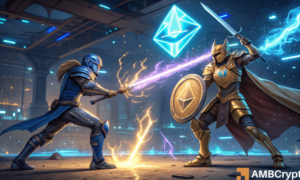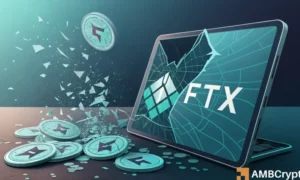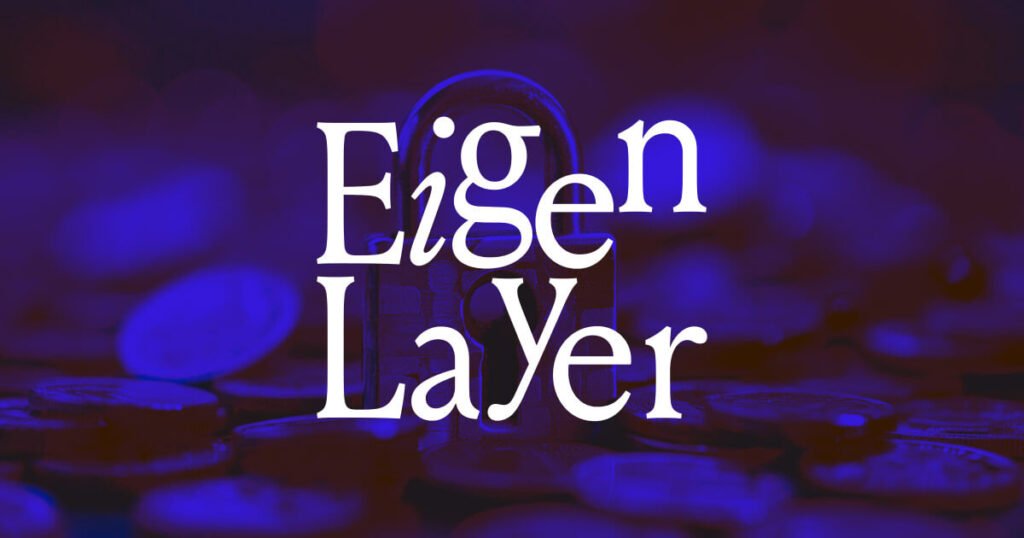EigenLayer has recently launched its native token, EIGEN, which is now actively trading on various exchanges. The token is positioned as a “Universal Intersubjective Work Token” that aims to address challenges related to “universality, isolation, metering, and compensation.” With a total supply of 1.67 billion tokens and around 186 million currently in circulation, EIGEN has been listed on major exchanges like Binance. The token initially surged to $4.44 following its trading debut before dropping slightly to $3.90 as of press time, giving it a fully diluted valuation of $6.5 billion. EigenLayer is a restaking platform that allows users to lock their ETH to provide security for third-party networks, currently holding over $12 billion in total value locked (TVL).
However, on-chain data shows that whales, or large holders, are selling their EIGEN tokens. Notably, Justin Sun, the founder of TRON, withdrew 5.24 million EIGEN tokens from the EigenLayer liquid restaking protocol and transferred them to the HTX exchange. Additionally, two significant traders made large deposits to Binance, with HashKey Capital transferring 496,013 EIGEN tokens worth $2.05 million, and another wallet associated with trader @GiganticRebirth depositing 253,947 EIGEN tokens valued at $1.06 million. While transfers to exchanges are typically viewed as bearish signals, indicating an intent to sell, some whales are also accumulating EIGEN tokens. Onchain analysis platform Lookonchain reported that two whales purchased a total of 702,324 EIGEN tokens, valued at $2.86 million.
On Oct. 1, the EIGEN Foundation announced that the token is now unlocked, allowing it to be traded, transferred, or staked. This change provides users with more flexibility and enables developers to create Actively Validated Services (AVSs) using EIGEN staking. Stakers can directly contribute to the security of these services, while partners can leverage EigenLayer’s security framework to enhance their protocols. The token unlock is seen as a significant moment that will foster greater engagement within the ecosystem, drive economic growth, improve governance, and facilitate protocol development, ultimately strengthening the broader decentralized network. By unlocking the token, EigenLayer aims to create more opportunities for users and developers to participate in the ecosystem and contribute to its growth.
In conclusion, EigenLayer has introduced its native token, EIGEN, which is now actively trading on various exchanges, positioning itself as a “Universal Intersubjective Work Token” to address challenges related to “universality, isolation, metering, and compensation.” While large holders, or whales, are selling their EIGEN tokens, others are accumulating them, indicating varying sentiment within the market. The recent token unlock allows for increased flexibility and opportunities for users and developers, enabling the creation of Actively Validated Services (AVSs) using EIGEN staking. This move is expected to drive economic growth, improve governance, and facilitate protocol development, ultimately strengthening the broader decentralized network. Overall, EigenLayer’s token launch and subsequent developments are poised to impact the crypto ecosystem and create new possibilities for stakeholders involved.

![Binance Coin [BNB]: Important levels to monitor as market conditions change](https://cryptonewsinsiders.com/wp-content/uploads/2025/02/BNB-1-1000x600.webp-300x180.webp)















